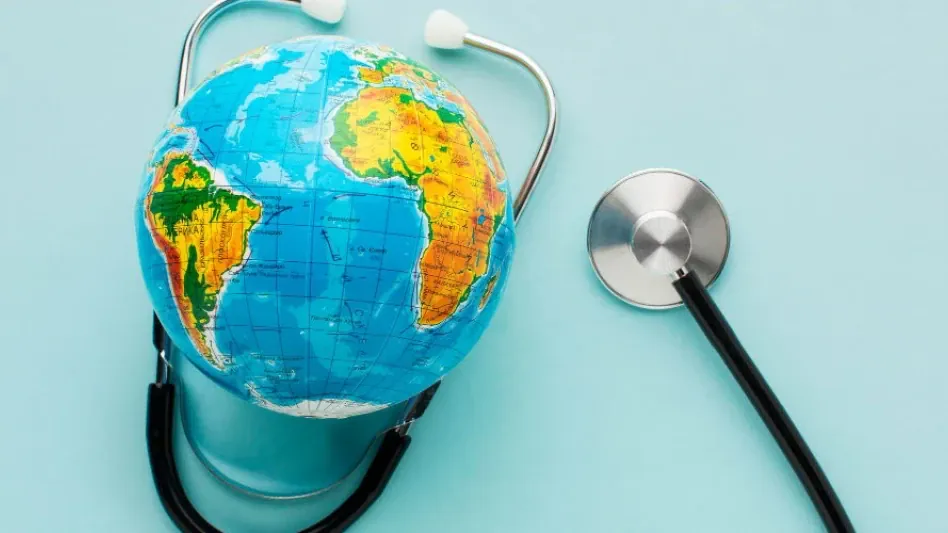On his first day back in the Oval Office, former U.S. President Donald Trump initiated the withdrawal of the United States from the World Health Organization (WHO), a decision that drew immediate concern from scientists and public health experts. They warn that this action could reverse decades of progress in combating infectious diseases such as AIDS, malaria, and tuberculosis. Moreover, there are serious fears that such a move could undermine global defenses against future pandemics, potentially leaving the world more vulnerable to new and evolving health threats. This scenario raises profound questions about how the international community will cope with the ripple effects of the U.S. exiting a vital health institution.
Trump’s executive order not only stops U.S. funding to the WHO but also reassigns federal personnel who worked with the organization and seeks alternative partners to undertake the WHO’s responsibilities. This is not Trump’s first attempt to sever ties with the WHO; in July 2020, during the height of the COVID-19 pandemic, he had suspended funding, accusing the organization of colluding with China to conceal the virus’s spread. These actions point to a broader pattern of disengagement that could have lasting implications for global health governance and the cooperative efforts needed to manage pandemic threats.
The Financial Impact on WHO
Historically, the United States has been a major donor to the World Health Organization, contributing between $160 million to $815 million annually over the past decade. WHO’s annual budget ranges from $2 billion to $3 billion, meaning the loss of U.S. funding could seriously cripple its global health initiatives. These initiatives include polio eradication, maternal and child health programs, and research on emerging viral threats. The financial void left by the U.S. withdrawal could severely limit the organization’s ability to function effectively and maintain its status as the leading global health body.
Apart from the financial implications, U.S. scientists and public health officials would lose access to critical genetic databases managed by the WHO. This loss could impede the development of vaccines and medicines, delaying crucial medical responses to emerging health threats. Furthermore, the absence of U.S. contributions might lead to a significant reduction in WHO’s operational capacity in vital areas such as epidemic surveillance and response. Other countries might struggle to fill the funding gap, and the long-term sustainability of WHO’s initiatives could be at risk, directly impacting global health security and pandemic preparedness.
Expert Opinions and Global Repercussions
Experts such as Dr. Tom Frieden and Lawrence Gostin have emphasized that the United States’ withdrawal from WHO would weaken global surveillance and epidemic response efforts. According to them, dismantling this partnership would make it more difficult to control new diseases and could potentially lead to future pandemics. Their concerns underline the essential role of international cooperation in combating global health issues. Without U.S. participation, the effectiveness of WHO’s initiatives to monitor and respond to health crises could be severely diminished, raising the stakes for worldwide health and safety.
There is also considerable uncertainty regarding whether other countries or institutions would be able to fill the funding void and provide the necessary support. For example, after Trump’s first withdrawal attempt, Germany temporarily increased its funding to WHO, but it remains unclear if similar support would be sustained over the long term. The uncertainty surrounding sustained financial backing adds another layer of complexity to the global health landscape, as nations and organizations grapple with the potential implications of a weakened WHO.
Trump’s Stance and WHO’s Response
Trump’s decision is motivated by his allegations of corruption within WHO and other public health agencies, accusing them of being unduly influenced by corporate power and China. This stance is reinforced by a 2020 investigation conducted by the Associated Press, which found that China had withheld critical information regarding COVID-19, thereby hindering WHO’s efforts to contain the virus. This narrative, central to Trump’s rationale, has amplified the existing skepticism about WHO’s operations and further complicated the perception of its role in global health.
In response to Trump’s announcement, WHO expressed regret and highlighted the longstanding cooperation between the United States and WHO on various global health threats, including smallpox and polio. The organization noted its ongoing efforts to reform and improve its accountability, cost-effectiveness, and impact, committed to enhancing its role in the global health arena. WHO’s response reflects a nuanced understanding of the complexities involved and emphasizes its readiness to adapt and evolve despite the challenges posed by the U.S. withdrawal.
Future of Global Health Initiatives
The withdrawal has sparked immediate concern among scientists and public health experts, warning that this decision could undo decades of progress in battling infectious diseases like AIDS, malaria, and tuberculosis. Additionally, there are significant worries that this move could weaken global defenses against future pandemics, potentially leaving the world more exposed to new and evolving health threats. This situation poses serious questions about how the international community will address the consequences of the U.S. leaving a crucial health institution.
Trump’s order not only stops U.S. funding to the WHO but also redirects federal personnel who worked with the organization and seeks new partners to take over WHO’s roles. This isn’t Trump’s first attempt to cut ties with the WHO; back in July 2020, during the peak of the COVID-19 pandemic, he halted funding, accusing the organization of collusion with China to hide the virus’s spread. These actions reflect a broader trend of disengagement that could have lasting effects on global health governance and international cooperation needed to tackle pandemic threats.









